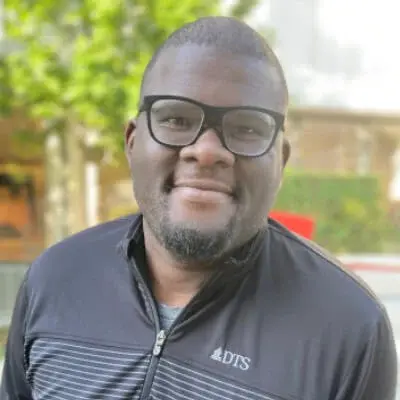
Curious About the Stages of Change? Try TTM
I was first introduced to the Transtheoretical Model of Behavior Change, or TTM, while interning at an in-patient addiction treatment center. The model stayed with me because, more than anything else, when I saw TTM applied, I saw it inspire a sense of hope in people. It gave language to what I was seeing, as clients moved from struggle to victory to struggle once again. It didn’t make meaningful change easy, but if it taught me anything, it was that change is possible. TTM is founded on one basic principle: change happens when YOU are ready for it to happen.
Are You Ready?
The TTM was developed by psychologists James Prochaska and Carlo DiClemente in the late 1970s. The theory evolved as they compared the experiences of a group of smokers who quit on their own with those who needed more treatment. They concluded that people quit smoking when they were ready to do so.
The transtheoretical model is based on six stages of change: precontemplation, contemplation, preparation, action, maintenance, and termination.
Precontemplation or Contemplation?
If you haven’t yet taken any actionable steps toward change, you’re likely at either the precontemplation or contemplation stage of change.
You’ll know you’re in the precontemplation stage because, if you’re really honest with yourself, you don’t want to change. You might not even think you need to change. Maybe you don’t see anything that bad about your thoughts and actions. That lack of desire leads to, well . . . nothing. And that nothing is what lets you know you’re in precontemplation. You haven’t even started thinking seriously about change.
TTM teaches that the contemplation stage is where the possibility for change starts gaining slow momentum. At this stage, perhaps you are starting to take a look at your life and beginning to evaluate the way you’re going about certain things. You might start weighing the pros and cons of what it could look like to change. In this stage, you may begin experiencing feelings of ambivalence–those love-hate feelings that are often an area of struggle for people thinking about making some changes.
Preparation & Action
That slow momentum for change in the transtheoretical model really starts to gain traction in the next two stages: preparation and action.
You’ll know you’re in the preparation stage when you start planning out what it will take to make the changes you’ve been contemplating. This stage can look different depending on your personality and personal preferences. For example, for some, preparation can take the form of delving into research mode–making time to explore all the different ways to tackle a particular kind of change. For others, it might look like putting together a plan, whether it’s a meal plan, a workout schedule, finding accountability, etc.
No matter what it might look like for you, in TTM, those small movements toward action are your clues that you’re in the preparation stage.
You know you’ve finally reached the action stage when all your thinking and planning comes together in that first actionable single step. You don’t have to do big things to reach the action stage. Even tiny movements forward count.
A first step might be signing up for a class that will teach you the skill you’ve been wanting to learn, or setting your alarm clock to start the early-day routine you’ve been wanting to adopt. It might also look like joining or creating a support group that can provide feedback, encouragement, and accountability. In this TTM stage, your desire for change and your behaviors are finally working together. And although that can be challenging, it can also feel great!
Keep in mind that even though your desire to change and your behavior coincide in the action stage, that doesn’t mean you’re going to be perfect. As anyone who’s ever successfully made a change will tell you, setbacks and relapses can happen. When they do, what’s most important is what you do with that very next step.
Maintenance & Termination
You’ll know you’ve arrived at the TTM maintenance stage once you’ve reached your desired change and stayed there for at least six months. At this point, action has settled into lifestyle, and you’ve learned to evaluate and take steps to help you prevent future relapses.
Once you’re in maintenance, you’re in the home stretch. The final stage of change in the transtheoretical model is termination. You’ll know you’ve reached the end of your change journey, because you’ve created momentum for a new life. You’ve reorganized your beliefs, priorities, and goals. Reaching the termination stage is a huge accomplishment.
Ready now?
Making the choice to change and establish new ways of thinking and living is brave. It might mean going against long-established habits and relationships; habits and relationships that have helped you cope and survive, but that you recognize no longer sustain the YOU that you want to be.
Learning about the TTM can help you better understand what personal transformation might look like for you. It’s a tool that’s meant to help you navigate the challenges that inevitably come with change. And the best way to apply it is to do so with the help of specialized support.
At Lifeologie Counseling Dallas, we specialize in supporting personal change. No matter what stage of change you’re in or between, our curious, knowledgeable, and compassionate team is here to help you achieve your goals. Book an appointment today, learn more about my approach, or meet our other therapists to get started. Deep, meaningful change is messy. Don’t go it alone.

About Tristan Frazier
Tristan Frazier, LPC, LMFT Associate, earned his Master of Theology and a Master of Arts in Counseling from Dallas Theological Seminary. He specializes in helping individuals and couples work through conflict resolution, divorce, anxiety, depression, trauma, and issues related to faith-based spirituality. He uses a customized holistic approach to treat mind, body and soul at Lifeologie Counseling Dallas, where he is currently accepting new clients for telehealth.
Meet Me

.png)

